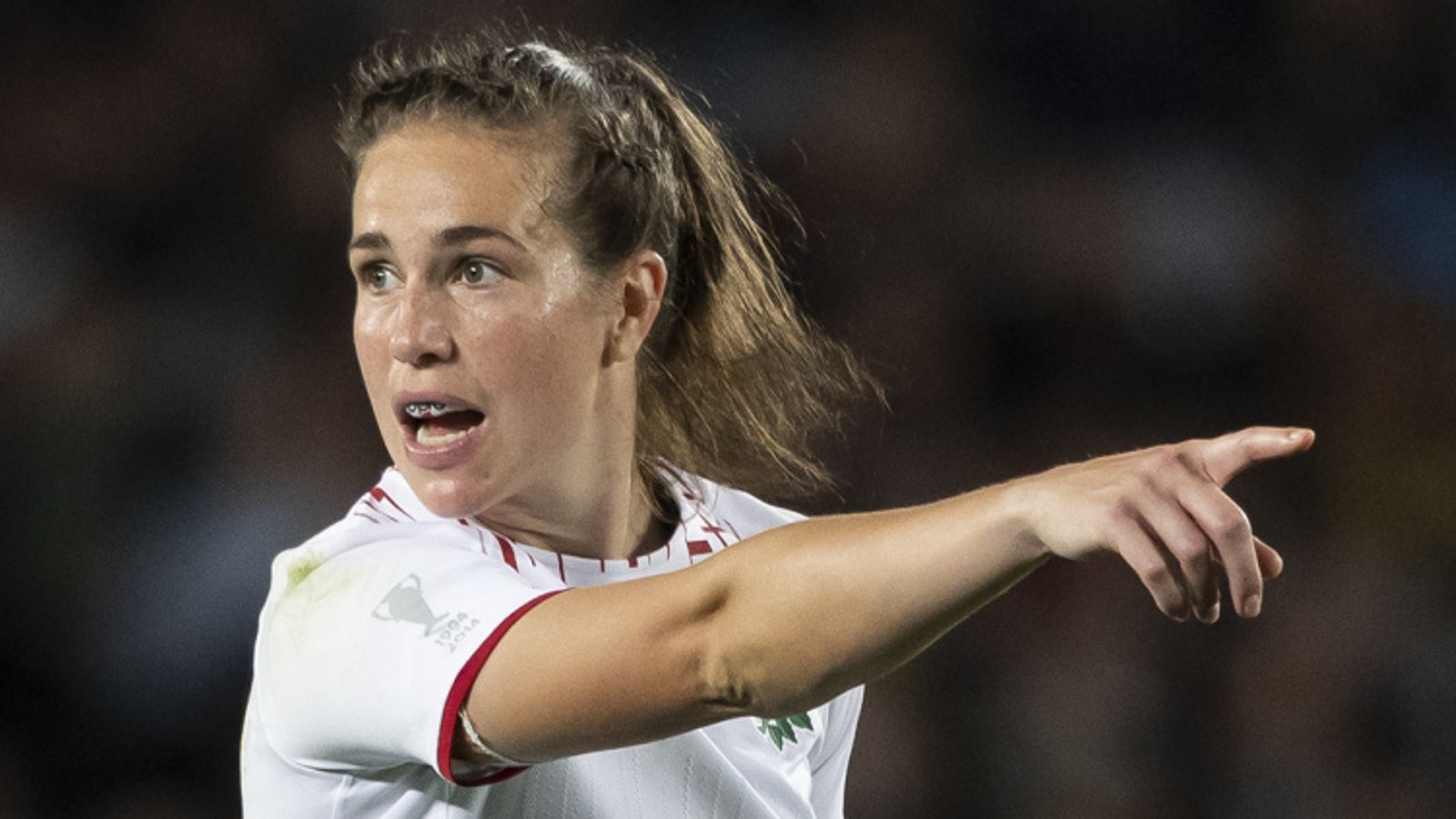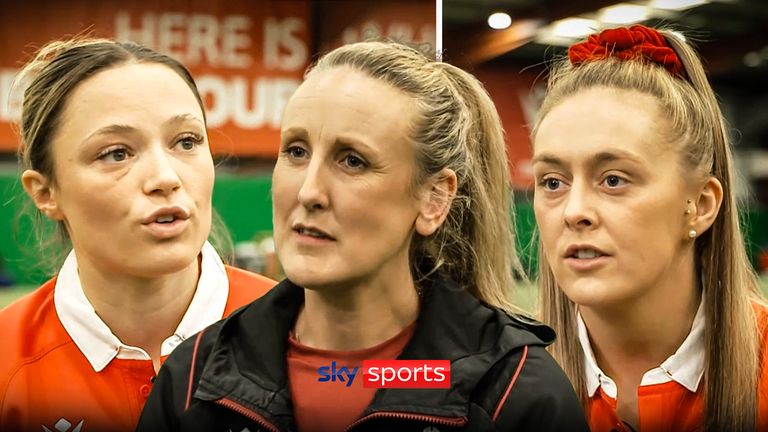With 111 caps to her name, England centre Emily Scarratt wants to impart the knowledge and wisdom she has gleaned over the years to help mentor the next generation.
“Back when I got into rugby it was more of a sink or swim situation and thankfully things have changed a lot from then,” Scarratt told Sky Sports.
“The support just wasn’t there and if you showed promise in the sport then you were thrown in at the deep end to see how you got on.”
That experience has taught Scarratt of the importance of helping the next generation, so they are not cast adrift.
The 34-year-old is leading the way as a mentor with her podcast ‘The Good, The Scaz & The Rugby’ and is now partnering again with Vodafone for the ‘EmpowHER Project’ to help support promising rugby stars.
The project has been helping three University Women’s Rugby teams across the UK, including Edinburgh, providing a £3000 grant for each institution, access to trailblazing technology with the use of the PLAYER.Connect app for menstrual cycle tracking and wellbeing, and one-on-one mentorship with top rugby stars.
“Through the EmpowHER Project we’ve been able to implement things that will help make a real life difference” Scarratt said.
“I’ve really enjoyed the mentoring, it’s been a great experience to help people along the way and share my journey with them too. I didn’t have this when I was younger so I want to be a source to provide it.”
Earlier this year, Scarratt returned from a long-term neck injury which saw her sidelined for 13 months before returning to the Red Roses squad for the defence of their Six Nations title this Spring.
Her time out of the sport allowed her to build further resilience, a key ingredient needed in sport and one she hopes to share with her mentee, 19-year-old Nicole Flynn.
“I learnt so much along the way and I want to be able to pass on that knowledge. It’s really important to me and the game,” Scarratt said.
“The biggest thing is that you need to keep checking in and not be too hard on yourself. You need to make sure you’re sleeping well and keep an eye on fatigue.
“My injury really taught me that I’m resilient and going through something like that is never easy but I was able to frame it and focus on different things.
“An injury can be all-consuming if that’s all you’re thinking about but you need to make sure you have things outside of it as well.
“There’s going to be some days where you can really go after it and other days you can’t. That’s why being able to track your symptoms through the technology we’re provided helps so much and it works both ways.
“There’s always a period during your cycle where you feel superhuman and you need to be able to capitalise on that. Equally, when you’re not feeling great you need to know when to give your body a break.”
Flynn was picked to play for Scotland during their Six Nations campaign earlier this year and throughout the mentorship has spoken with Scarratt about how to improve her game, better take care of herself and gain confidence.
“We invested the bursary we got into new technical and analytical equipment so we could review games better and for me personally, I’m really big on analysis so now we can see things from different camera angles and see how I’m playing,” Flynn said.
“I can also track and monitor my mental and physical health. Sometimes if I’m in pain and it’s an awkward thing to communicate then I can input the data into the app and it goes straight to the coaches.
“I’ve found the mentoring so helpful – especially because we play in a similar position and when I got the Six Nations call up I could speak to someone who already had that experience.
“Being able to have a removed sounding board is really important. You have coaches and players that are in the environment but sometimes it’s nice to have that removed voice and someone who can show you the bigger picture.”
It is hoped the research and information gathered from the PLAYER.Connect app will help athletes better understand what their bodies need during their menstrual cycle and track their symptoms. Vodafone introduced a ground-breaking concussion module to the app which helped Wales Rugby track symptoms including headaches and nausea as well as monitoring recovery to help players maximise their performance by providing in-depth information about their bodies.
Evidence suggests if a player sustains a concussion during the luteal phase of a menstrual cycle, when progesterone is higher, their symptoms might be prolonged and more severe than their male counterparts.
The technology was used throughout the Women’s Six Nations and it is hoped that the information gathered will help assist teams for the World Cup next year.
England’s World Cup winner Phil Vickery and former Wales fly-half Gavin Henson are among more than 200 retired rugby male players suing World Rugby, England’s Rugby Football Union (RFU) and the Welsh Rugby Union (WRU) for failing to put in place reasonable measures to protect the health and safety of players.
This alleged failure is claimed to have led to disorders such as motor neurone disease, early onset dementia, chronic traumatic encephalopathy, epilepsy and Parkinson’s disease.
By collecting data and research, governing bodies will be able to set protocols into place to ensure a safer, healthier and better future for rugby players.
Ad content | Stream Sky Sports on NOW
Stream Sky Sports live with no contract on a Month or Day membership on NOW. Instant access to live action from the Premier League and EFL, plus darts, cricket, tennis, golf and so much more.




